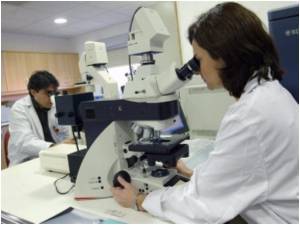Scientists have produced a tiny molecular 'binder' that has the potential to make development of new drugs cheaper and less time taking.

In the body it then seeks out the designated sites to be treated. What's unique about the polypeptide is that it dramatically enhances the properties of the little molecule in a simple and very general way.
"This produces superbinders. They bind more strongly and more specifically than other alternatives," said Lars Baltzer, professor of organic chemistry.
The whole concept goes against the grain of what is usually done in drug development.
The human growth factor hGH uses 35 amino acids to bind to its receptor, but it turns out that only six of them are critical. The rest can be replaced without significantly changing the function. There's really nothing very special about placing a general peptide on a small molecule, but nobody has done it before, he said.
In this study the peptide was successfully bound to the inflammation marker CRP, which is an indicator of a risk of premature death in heart patients, among other things. Several other studies are underway and are proving to be equally successful.
Advertisement
The spin-out company that was previously formed out of Baltzer's research team is now going to further develop the concept to be able to help the drug industry determine at a considerably earlier stage than today whether a drug candidate is worth pursuing or not.
Advertisement
Source-ANI










